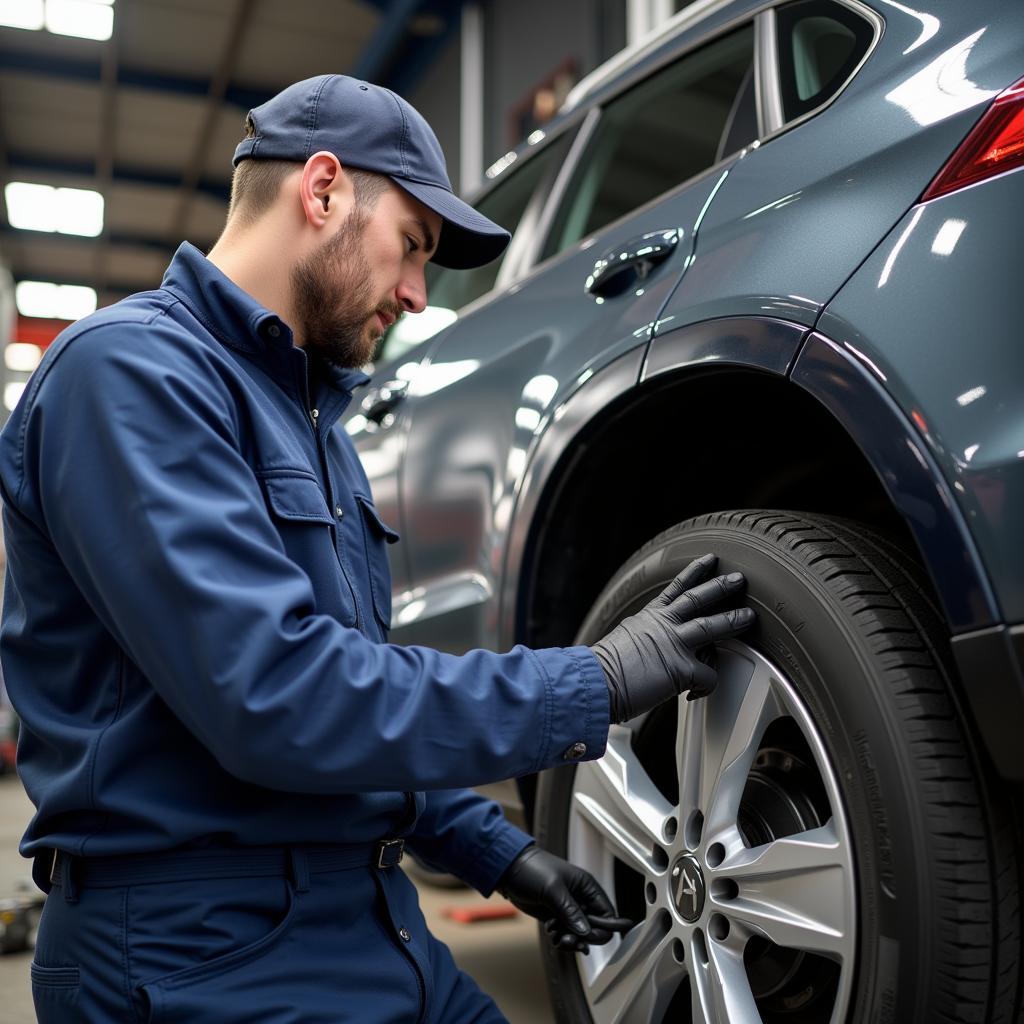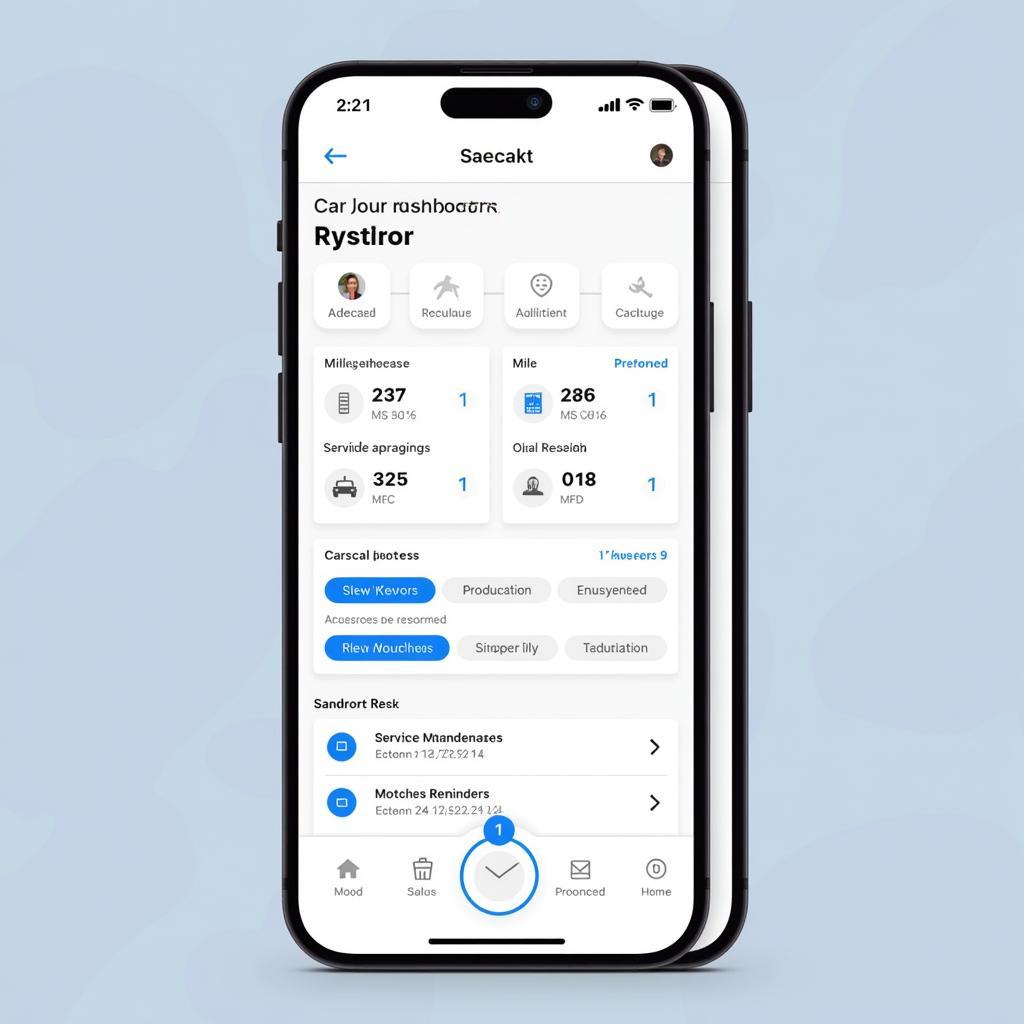Are you looking to gain a better understanding of car maintenance and learn essential skills to keep your vehicle running smoothly? If so, you’ve come to the right place. In this comprehensive guide, we will explore the basics of car maintenance, from regular checkups to common repairs. We’ll cover topics that are relevant to Dallas car owners, whether you’re a novice or have some experience with car maintenance.
Why is Basic Car Maintenance Important?
Regular car maintenance is crucial for ensuring the longevity and safety of your vehicle. By staying on top of routine checkups and addressing minor issues before they escalate, you can prevent major breakdowns, save money on repairs, and extend the life of your car.
Essential Car Maintenance Tips:
1. Check Fluid Levels Regularly
Regularly checking and topping off fluid levels is a fundamental aspect of basic car maintenance.
“It’s like checking your car’s vital signs,” says John Smith, a certified mechanic with over 20 years of experience. “Fluids keep your engine, transmission, and other components running smoothly.”
Here’s a list of fluids you should check:
- Engine Oil: The lifeblood of your engine, engine oil lubricates moving parts and protects them from wear and tear. You should check your engine oil level every 3,000 miles or more frequently if your car is driven in extreme conditions.
- Coolant: Coolant helps regulate engine temperature and prevent overheating. Check the coolant level in your radiator reservoir periodically, especially during hot weather.
- Brake Fluid: Brake fluid is crucial for stopping your car. Check the fluid level in your brake master cylinder regularly. If the level is low, this could indicate a leak, which needs to be addressed immediately.
- Transmission Fluid: Transmission fluid lubricates and cools the transmission, ensuring smooth gear shifting. Check the transmission fluid level and color. If it is dark or smells burnt, it may need to be changed.
- Power Steering Fluid: Power steering fluid assists with steering. Check the fluid level in the power steering reservoir. If it’s low, it might need to be replenished.
2. Change Oil and Filter Regularly
Regular oil changes are essential for keeping your engine healthy. The oil filter traps contaminants and prevents them from circulating in the engine.
“Changing your oil and filter is like giving your engine a mini-spa day,” adds John Smith. “It helps keep your engine running smoothly and efficiently.”
Most manufacturers recommend an oil change every 3,000 miles or 3 months, whichever comes first.
3. Rotate Tires
Rotating your tires ensures even wear and tear, extending their lifespan. It helps prevent uneven tire wear, which can impact handling, fuel efficiency, and overall performance.
4. Inspect Your Battery
Your car battery is essential for starting the engine. You should regularly inspect your battery for corrosion and ensure the terminals are clean. You can also test the battery’s voltage using a multimeter.
5. Check Tire Pressure
Underinflated tires can affect fuel economy and handling, while overinflated tires can lead to a harsh ride. Check your tire pressure monthly and ensure it matches the recommended PSI level listed in your car’s owner’s manual.
6. Inspect Brakes
Your brakes are critical for safe driving. Check your brake pads and rotors regularly for signs of wear. Listen for any unusual noises, such as squeaking or grinding, which could indicate a problem.
Common Car Repairs in Dallas:
Dallas residents often face specific car repair challenges due to the climate and traffic conditions.
1. Air Conditioning Repair:
In the Texas heat, a faulty AC system can be a major discomfort. Common AC repairs include:
- Refrigerant Leaks: Refrigerant leaks are a common cause of AC failure.
- Compressor Problems: The compressor is the heart of your AC system. If it fails, your AC won’t work.
- Clogged Filters: Dirty cabin air filters can restrict airflow, affecting AC performance.
2. Engine Cooling System Repair:
Dallas’ hot summers place a significant strain on your engine cooling system. Common cooling system issues include:
- Radiator Leaks: Leaks in the radiator can cause the coolant to leak out, leading to overheating.
- Water Pump Failure: The water pump circulates coolant throughout the engine. A failing water pump can lead to overheating.
- Thermostat Problems: The thermostat regulates engine temperature. A faulty thermostat can prevent the engine from reaching optimal operating temperature.
3. Tire Repairs:
Dallas roads are prone to potholes and debris, increasing the risk of tire damage. Common tire repairs include:
- Flat Tires: Flat tires are a common occurrence.
- Tire Punctures: A nail or other sharp object can puncture your tire.
- Tire Blowouts: Tire blowouts are a serious hazard.
4. Electrical System Repairs:
Dallas’ humid climate can contribute to electrical system issues. Common electrical system repairs include:
- Starter Problems: A faulty starter can prevent your car from starting.
- Alternator Failure: The alternator charges the battery. A failing alternator can lead to a dead battery.
- Lighting Issues: Headlights, taillights, and other lights can malfunction due to faulty bulbs, wiring, or electrical components.
Finding a Reliable Mechanic in Dallas:
When it comes to car maintenance and repairs, it’s important to find a trusted mechanic. Look for mechanics with certifications and positive reviews.
Conclusion:
By mastering basic car maintenance, you can keep your vehicle in top shape and avoid costly repairs. Remember to check fluid levels, change your oil regularly, rotate your tires, and inspect your brakes.
If you’re unsure about any of these tasks, don’t hesitate to seek professional help. A qualified mechanic can provide expert guidance and ensure your car is properly maintained.
Contact AutoTipPro today for expert car maintenance and repair services in Dallas!
Phone: +1 (641) 206-8880
Office: 500 N St Mary’s St, San Antonio, TX 78205, United States
FAQ:
1. How often should I change my air filter?
It’s generally recommended to change your air filter every 12,000 miles or 12 months, whichever comes first.
2. What is a good way to prevent rust on my car?
Regular car washes, especially during the winter, can help prevent rust. Also, applying a protective wax coating to the paint can help shield your car from the elements.
3. How can I tell if my brakes need replacing?
Listen for squeaking, grinding, or other unusual noises when braking. Also, inspect your brake pads and rotors for wear and tear. If they are worn down, it’s time for a replacement.
4. What are some common signs that I need to take my car in for a checkup?
Check engine light, strange noises, leaks, or a decrease in fuel efficiency are all signs that you should take your car in for a checkup.
5. What are some good resources for learning more about car maintenance?
Your car’s owner’s manual, online forums, YouTube videos, and local car clubs are all good resources for learning more about car maintenance.
6. Is there anything I can do to save money on car maintenance?
Consider performing some routine maintenance tasks yourself, such as checking fluid levels, replacing air filters, and rotating tires. Also, look for coupons and discounts on car parts and services.






Leave a Reply